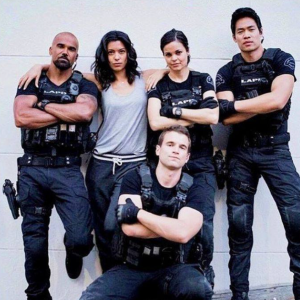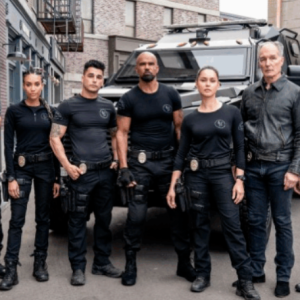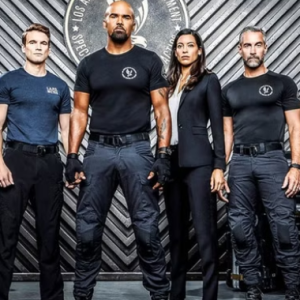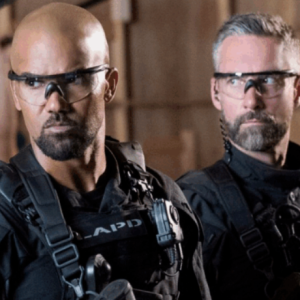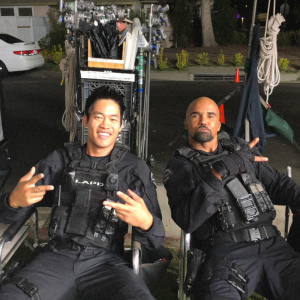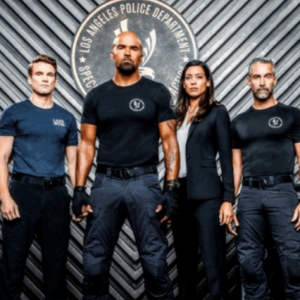In early 2017, CBS embarked on an ambitious reboot: a police drama pilot inspired by the 2003 film S.W.A.T. More than a nostalgic retread, the show was meticulously reimagined for contemporary audiences, aiming to delve deeper into the complexities of law enforcement and modern social issues. At its heart, the series sought to balance high-octane action with poignant social commentary, a crucial distinction from its cinematic predecessor. Shemar Moore was cast as Daniel “Hondo” Harrelson, a deeply conflicted yet resolute lieutenant, perpetually torn between his loyalty to his South Central Los Angeles neighborhood and his duties as a S.W.A.T. leader. This internal struggle, navigating the fraught relationship between police and community, became a central pillar of the show’s identity.
However, the show’s enduring strength wasn’t solely reliant on Moore. The necessity of a robust ensemble led to the casting of Lina Esco and Kenny Johnson, whose additions sealed the pilot’s foundation, injecting the team with diverse personalities and genuine chemistry that would define its appeal. Their presence was crucial in building a believable, multi-faceted unit, moving beyond the traditional procedural tropes to explore the human element within an elite tactical force.
Lina Esco, as Officer Christina “Chris” Alonso, brought magnetic intensity and a pioneering spirit. While echoing Michelle Rodriguez’s film character, Esco imbued Chris with quiet strength, making the role her own and proving her worth in a male-dominated field. Chris’s arc became one of the series’ most compelling, sensitively exploring her bisexuality and depicting her aspirations to leadership, ultimately leading to her poignant departure in season six to mentor at-risk girls. Her presence championed much-needed representation, offering a multi-dimensional portrayal that shattered stereotypes and provided a powerful role model within law enforcement. She was not only a formidable combatant but also a compassionate voice, pushing boundaries and advocating for change from within the system.
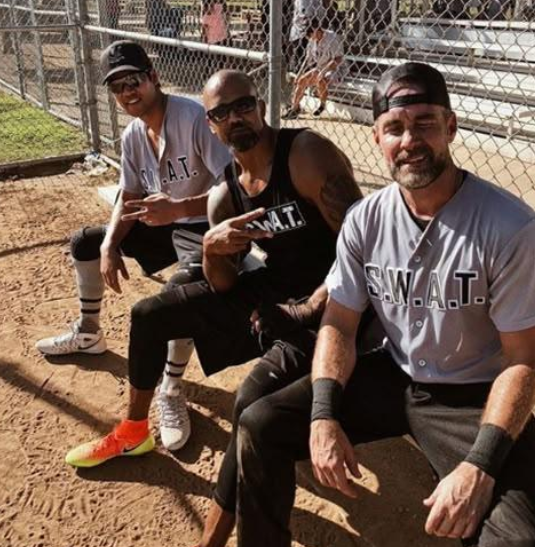
Similarly, Kenny Johnson, known for raw performances in The Shield and Bates Motel, encapsulated the pilot’s street-smart edge as Dominique Luca. As the team’s expert driver and mechanic, Luca offered a distinctive blend of unwavering loyalty and understated intensity. Johnson’s portrayal imbued Luca with a grounded, blue-collar sensibility mirroring Los Angeles’ diverse realities. He was the reliable presence who could lighten the mood with a wry comment, yet instantly shift to fierce protectiveness. His character’s evolution, grappling with a career-threatening injury before returning with renewed resolve, showcased the unit’s deep camaraderie and the personal sacrifices inherent in the job. Johnson’s ability to weave humor, heart, and toughness made Luca an indispensable part of the dynamic, often serving as the team’s anchor and moral compass.
The formidable talent in front of the camera was matched by a visionary creative team behind the scenes. Aaron Rahsaan Thomas and Shawn Ryan co-wrote the pilot, injecting grit, emotion, and contemporary relevance. Justin Lin, acclaimed for his work on the Fast & Furious franchise, directed the pilot, giving it a high-octane polish and distinct visual flair. Executive producers Neal H. Moritz and Thomas meticulously crafted the show’s narrative pulse and laid the groundwork for its longevity, ensuring that the series remained relevant and compelling over its impressive run.
This collaborative strength propelled S.W.A.T. from pilot to hit. CBS greenlit the pilot in February 2017, ordering a full series by mid-May, which officially debuted on November 2, 2017. It quickly captured audiences with its potent blend of intense action, heartfelt character development, and a powerful ensemble. The early success indicated the creative team had struck a chord with viewers seeking a procedural daring to engage with complex social issues, from racial tensions and police accountability to gang violence and homelessness, all while maintaining its core identity as an action-packed drama.
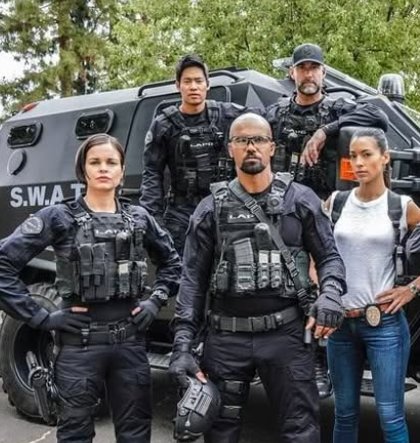
The impact of Esco and Johnson’s casting on the S.W.A.T. formula cannot be overstated. Beyond merely adding depth, their presence introduced layers of diversity and dimension that transcended stereotypical cop drama roles. Esco’s Chris, as a Latina, bisexual officer, delivered much-needed representation, challenging preconceptions and fostering a more inclusive portrayal of law enforcement. Her character’s struggles added a richness that elevated the show beyond mere action. Concurrently, Johnson’s textured presence as Luca offered a relatable authenticity, his loyalty tempered with a street-smart edge that felt genuine to the layered, blue-collar reality of L.A. streets. They brought a nuanced realism to their roles, reflecting the multifaceted experiences within the LAPD and the communities it serves.
Crucially, their individual strengths coalesced into compelling team chemistry, especially with Moore’s Hondo. They functioned as a family forged under immense pressure. Hondo, the community protector, found Chris and Luca—alongside other core members like Deacon Kay, Jim Street, and Victor Tan—as vital extensions of his mission. Their performances grounded the hyper-tense action in relatable humanity, fostering emotional investment. The banter, trust, disagreements, and unwavering support cultivated a dynamic that felt incredibly real, transforming the ensemble into a cohesive, believable unit. This chemistry was the bedrock of the show’s appeal, allowing it to explore heavy themes without losing its sense of camaraderie and hope.
Reflecting on S.W.A.T.’s remarkable run of eight seasons and over 163 episodes, it becomes unequivocally clear that the foundational tone set by the pilot—a carefully balanced dialect of adrenaline-pumping action and deep, emotional heart—was paramount to its success. Without the anchoring presence of Esco and Johnson within the ensemble, S.W.A.T. risked becoming another glossy, yet ultimately forgettable, procedural. Instead, their unique contributions, alongside Moore’s central performance, transformed it into a show rich with soul and swagger. It became “their show” as much as it was Hondo’s, reflecting the multifaceted perspectives and experiences within the unit.
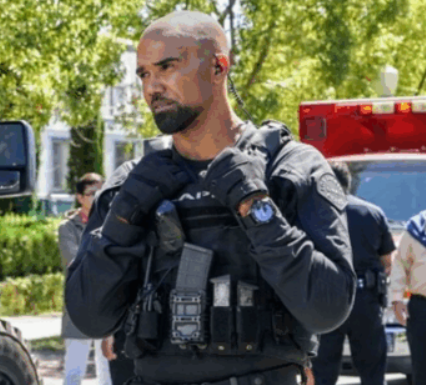
Though both stars eventually departed around season six – Esco to pursue new creative endeavors and Johnson’s character Luca facing a challenging recovery – their mark never faded. The show evolved, introducing new characters, yet the original emotional architecture established by Esco and Johnson remained iconic. They were instrumental in crafting an L.A. squad that became a genuine family, and their absence, while gracefully handled, was deeply felt by both teammates and devoted audience. Their legacy cemented the series’ reputation for character-driven storytelling amidst its signature action. Their contributions transcended their time on screen, leaving an indelible imprint on the series’ enduring identity and its message of loyalty, duty, and community.
In essence, CBS’s reboot of S.W.A.T. was not just casting a show; it was building a legacy. Lina Esco and Kenny Johnson brought an invaluable blend of authenticity, edge, and profound heart to a genre often prone to formulaic approaches. Paired with Shemar Moore’s Hondo and backed by visionary creators, their indelible contributions were pivotal. They helped elevate the series from a trodden storyline into a significant cultural touchstone, exploring contemporary issues through complex characters. More than just joining the mission, Esco and Johnson fundamentally defined it, shaping S.W.A.T. into a powerful and enduring television phenomenon.
